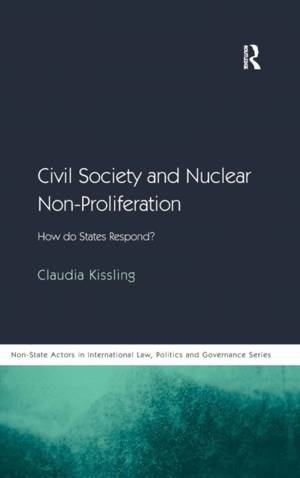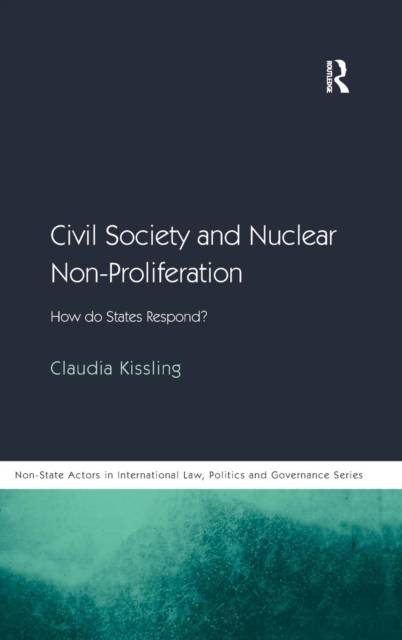
- Afhalen na 1 uur in een winkel met voorraad
- Gratis thuislevering in België vanaf € 30
- Ruim aanbod met 7 miljoen producten
- Afhalen na 1 uur in een winkel met voorraad
- Gratis thuislevering in België vanaf € 30
- Ruim aanbod met 7 miljoen producten
Zoeken
€ 274,95
+ 549 punten
Omschrijving
Since the end of the Cold War, globalization has brought new actors to the political arena. One of those which has attracted considerable attention in academic research is civil society or NGOs. Claudia Kissling addresses the topic of civil society participation in the nuclear non-proliferation regime. The regime qualifies well for this objective since it features, given its characteristics as a treaty regime in the international security field, notable legal avenues for civil society participation. The study takes on a twofold perspective. It addresses the empirical question of whether civil society can contribute to the evolution of regimes in the security field, especially when it comes to security cooperation. It also questions whether civil society can, under certain conditions, contribute to the democratic quality of international decision-making. Here, empirical findings are used in order to test normative political theories on the legitimacy and democracy of global institutions.
Specificaties
Betrokkenen
- Auteur(s):
- Uitgeverij:
Inhoud
- Aantal bladzijden:
- 224
- Taal:
- Engels
- Reeks:
Eigenschappen
- Productcode (EAN):
- 9780754673002
- Verschijningsdatum:
- 20/05/2008
- Uitvoering:
- Hardcover
- Formaat:
- Genaaid
- Afmetingen:
- 156 mm x 234 mm
- Gewicht:
- 494 g

Alleen bij Standaard Boekhandel
+ 549 punten op je klantenkaart van Standaard Boekhandel
Beoordelingen
We publiceren alleen reviews die voldoen aan de voorwaarden voor reviews. Bekijk onze voorwaarden voor reviews.











